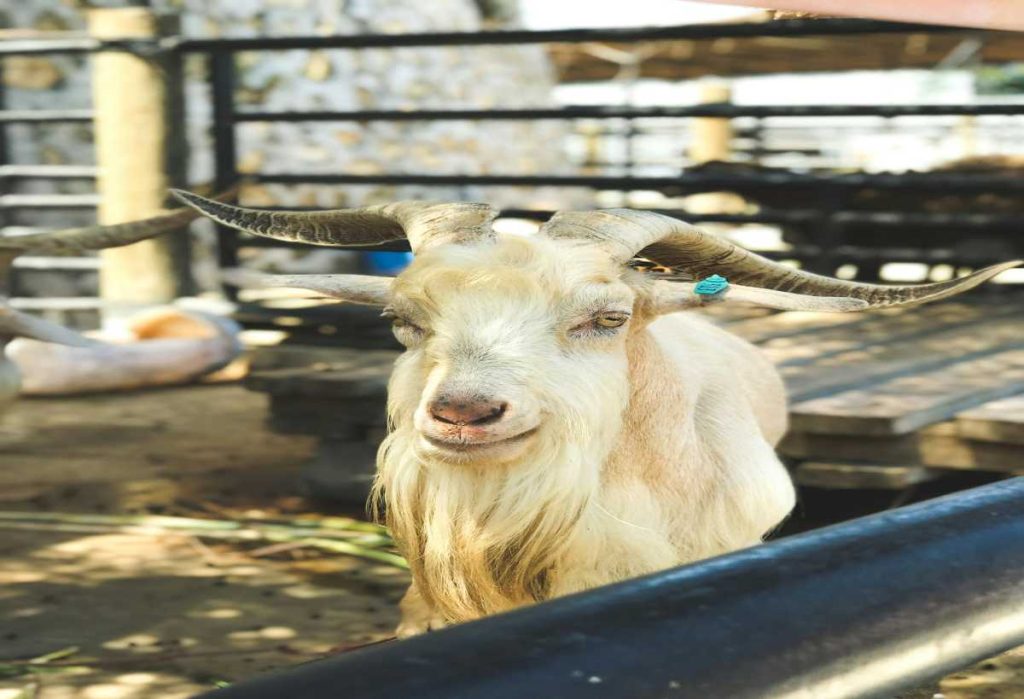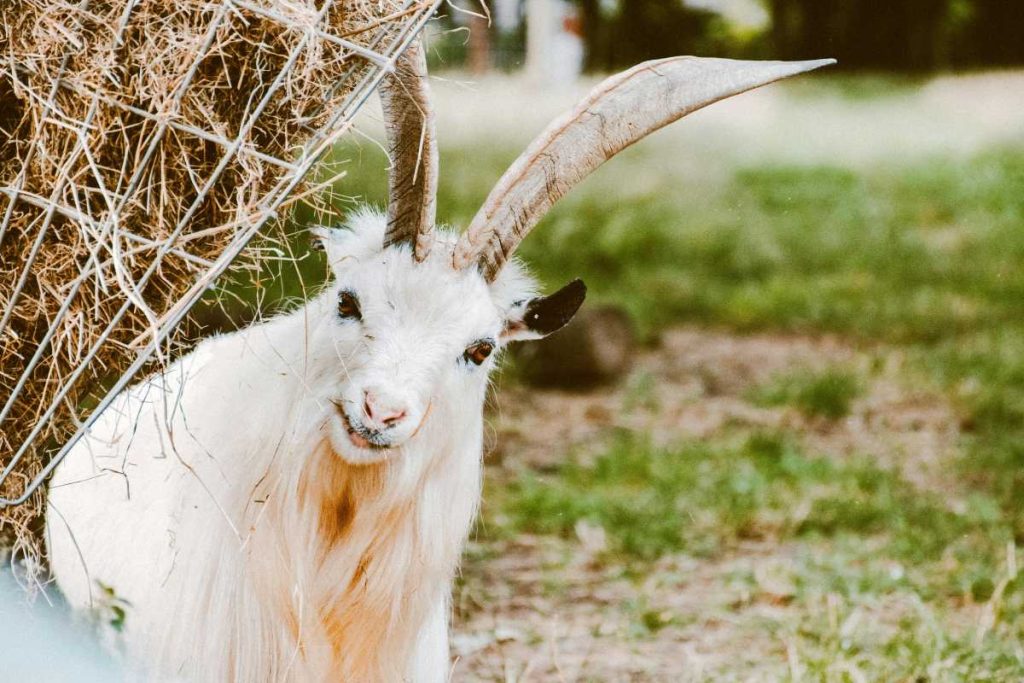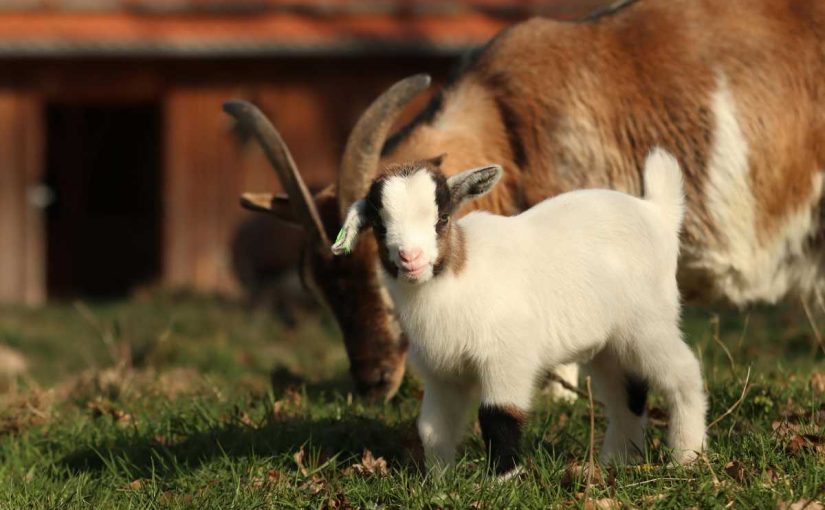Goats are fascinating creatures that have been domesticated for thousands of years, providing us with milk, meat, and fiber. While most people know some basic facts about goats, there are many surprising details about these intelligent and curious animals that you might not know. From their unique behavior to their incredible physical abilities, here are 10 surprising facts about goats that might just change how you think about them.
1. Goats Have Rectangular Pupils
One of the most remarkable physical features of goats is their rectangular-shaped pupils. While most animals have round pupils, goats’ pupils are horizontally elongated, giving them a unique appearance. This unusual eye shape allows goats to have a wide field of vision – approximately 340 degrees – without having to move their heads. This helps them stay alert to predators, as they can see almost everything around them. The rectangular pupils also help them judge distances and navigate tricky terrain.
Why It’s Surprising: Their vision is much broader than most animals, which makes them incredibly aware of their surroundings.
2. Goats Are Natural Climbers
Goats are incredible climbers and are known for their ability to scale steep, rocky terrain that seems impossible to navigate. Their natural habitat includes mountainous regions, and they have evolved to thrive in such environments. Goats have specialized hooves that give them traction on rough surfaces, allowing them to easily climb cliffs, trees, and even the sides of buildings. Goats are also great jumpers and can leap over fences and obstacles with ease.
Why It’s Surprising: Goats are often seen as farm animals that graze on flat fields, but they are actually well-equipped for mountain climbing and exploring vertical spaces.
3. Goats Are Extremely Social Animals
Goats are highly social animals that thrive in groups. They are herd animals, meaning they feel much safer and happier when they are with other goats. Goats will often form close bonds with other members of their herd and can become stressed or anxious if isolated. In fact, goats have been known to get depressed when they are alone, so it’s always a good idea to have at least two goats if you plan to keep them as pets or livestock.
Why It’s Surprising: While goats are often seen as independent, they are actually very social and need companionship for their mental well-being.
4. Goats Have a Unique “Beard” and “Goatee” Look
Many goats have distinctive facial hair that gives them a unique appearance. Male goats, especially those of certain breeds, often grow a long, bushy beard. Females, too, may have a smaller beard or “goatee” under their chin. This facial hair isn’t just for looks—it can also help goats keep their faces clean and dry in wet or muddy environments. Additionally, some goats use their beards to help with communication and social signaling.
Why It’s Surprising: The facial hair of goats is a distinguishing feature that makes them stand out from other farm animals and serves a functional purpose.

5. Goats Can “Headbutt” to Show Dominance
Goats are known for their headbutting behavior, especially during social interactions with other goats. This behavior is more common in males, but females may headbutt as well. Goats will often use their horns or heads to assert their dominance within the herd. These headbutts can be surprisingly forceful, and goats may even clash with each other in what looks like a mini wrestling match. The headbutting helps establish a hierarchy within the herd.
Why It’s Surprising: The playful headbutting behavior is a social activity that helps goats communicate and establish pecking orders, much like how some animals use vocalizations or body language.
6. Goats Can Recognize Faces
Goats have impressive memory and cognitive abilities, including the ability to recognize individual faces. Studies have shown that goats can remember and distinguish between different human faces, as well as the faces of other goats. This ability allows goats to form relationships and recognize familiar individuals, which is especially useful when they are interacting with humans or other goats on a farm. Their ability to remember faces suggests that goats are quite intelligent animals.
Why It’s Surprising: Goats can recognize faces the same way humans can, showing that they have a high level of social intelligence and memory.
7. Goats Can “Bleat” in Different Tones
Goats are vocal animals that use different sounds to communicate with each other and with humans. They can bleat in various tones to express a range of emotions, from excitement to distress. A goat’s bleat can signal hunger, curiosity, or even a desire for attention. Interestingly, goats can recognize the bleats of their friends and family, further emphasizing their social nature.
Why It’s Surprising: Goats have a sophisticated vocal communication system, and their bleating serves as a way to communicate their needs or emotions.
8. Goats Are Natural Foragers
While many farm animals stick to eating whatever is put in front of them, goats are natural foragers. They will browse a wide variety of plants, from grass and shrubs to tree leaves, vines, and even bark. Goats are known for nibbling on almost anything, and they have a more varied diet compared to other grazing animals like cows or sheep. Their keen sense of curiosity often leads them to taste things that other animals avoid, such as weeds, herbs, and even some plants that might be toxic to other animals.
Why It’s Surprising: Goats are incredibly resourceful when it comes to finding food, and their ability to forage means they can often survive in environments that other livestock cannot.
9. Goats Can Be Trained
Goats are much more intelligent and trainable than many people realize. With patience and consistent training, goats can learn a variety of tricks and behaviors, such as following commands, walking on a leash, or even jumping through hoops. Many goat owners use positive reinforcement techniques to train their goats, rewarding them with treats for good behavior. Some goats have even been trained to perform in shows or as part of agricultural demonstrations.
Why It’s Surprising: Goats are often underestimated in terms of intelligence, but they are capable of learning complex tasks and responding to training.
10. Goats Have Different Personalities
Just like humans, goats have unique personalities. While some goats are curious and adventurous, others are more timid and reserved. Some goats are social butterflies, constantly seeking attention and companionship, while others may prefer to keep to themselves. Each goat will have its own preferences and quirks, making them fascinating individuals to observe. This diversity in personality means that no two goats are exactly alike, even within the same herd.
Why It’s Surprising: Goats are often thought of as similar, but each one has its own distinct personality, just like any other pet or farm animal.
Conclusion
Goats are much more than just farm animals; they are intelligent, curious, and social creatures with surprising abilities and behaviors. From their unique rectangular pupils to their headbutting antics and their ability to recognize faces, goats have a variety of fascinating traits that make them stand out. Whether you’re raising goats for milk, meat, fiber, or simply as companions, it’s clear that these animals have much more to offer than meets the eye.
By understanding these surprising facts, you can gain a deeper appreciation for goats and their incredible adaptability, intelligence, and social nature. Next time you encounter a goat, you’ll know just how special these animals truly are!




